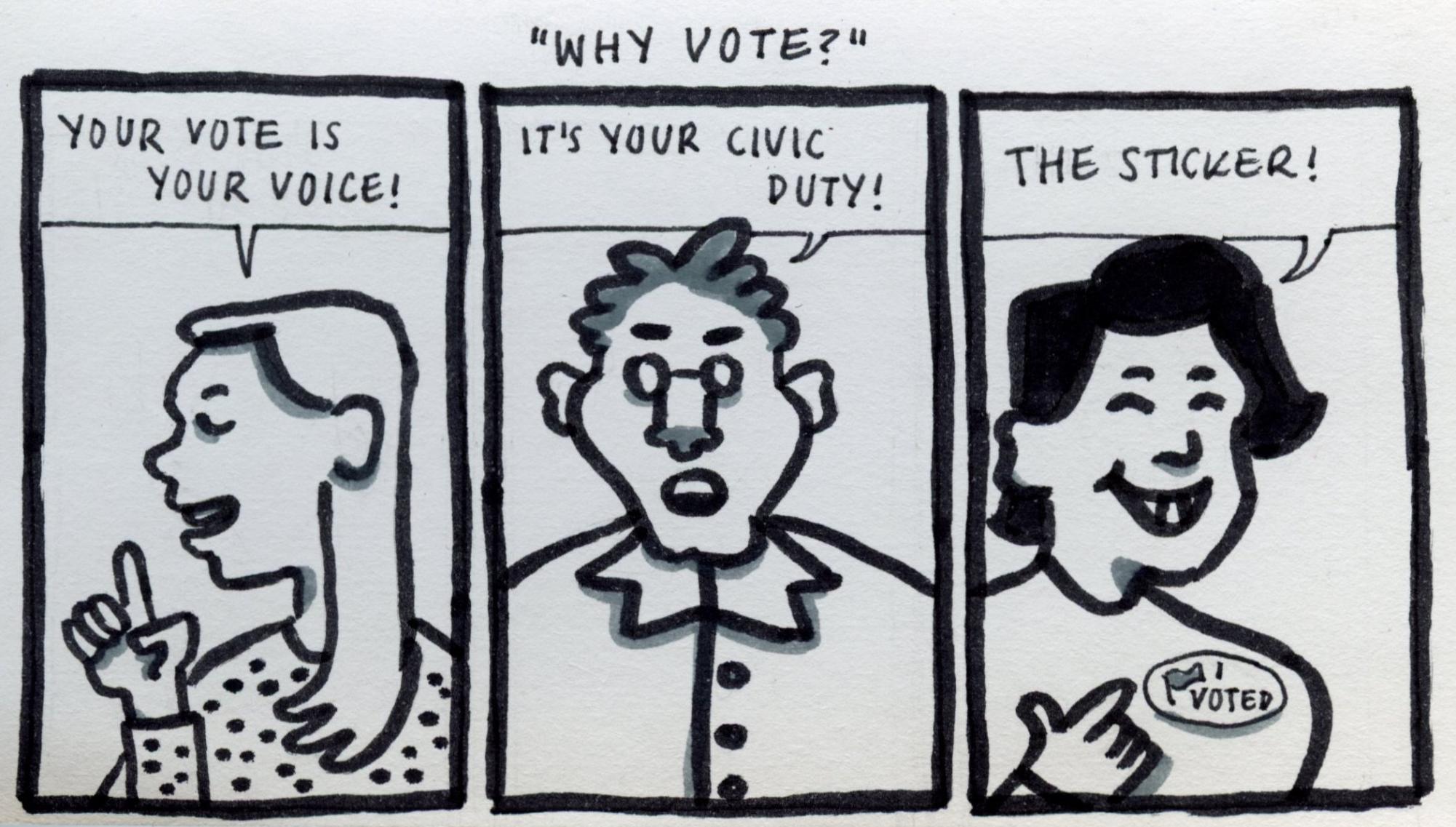
The Washington state presidential primary on March 12 approaches rapidly, yet many students lack enthusiasm about the election.
In past years, Whitman students have been amongst the top voting college students in the country. Neal Christopherson, Director of Institutional Research, provided The Wire with data from the National Study of Learning, Voting and Engagement (NSLVE)’s 2020 report. The NSLVE combines enrollment records with publicly available voting files to determine rates of voting at different institutions.
According to the report, in 2020, 84.6 percent of eligible Whitman students voted on election day. This is compared to 66 percent of college students nationwide. It was also a significant increase from the 73.2 percent of Whitman students who voted in 2016.
But just because Whitman students tend to vote doesn’t mean they’re enthusiastic about the upcoming election. Associate Professor of Politics Susanne Beechey shared that many Whitman students don’t seem particularly interested.
“The students that I’ve been talking with are not seeing elections as the primary way to engage politically, and my own read of that is because they’re not seeing a robust enough set of perspectives. Or to put it another way, they’re not excited about either Biden or Trump, and so it’s hard to get excited about presidential electoral politics,” Beechey said.
Beechey added that this doesn’t seem unusual to her.
“I think it’s actually not that uncommon of an occurrence in a two-party democratic process to look at the set of options and not find anybody that is inspiring the vision of the world you want to see,” Beechey said.
Planned Parenthood Generation Action (PPGA) co-president Lucy Collins also hasn’t noticed a lot of excitement on campus.
“I haven’t really seen much about the election on campus, so I would say people are pretty ambivalent or indifferent,” Collins said.
It doesn’t help that, so far, it seems pretty clear who will be on the presidential ballot in November.
“This year is just weird,” Beechey said, “Typically, one of the big parties is having a real battle to see who will get the nomination. And what’s weird this year is we entered with two presumptive nominees. To some extent, the Republican primary process has really been focused more on [whether] the Republicans that do not want to see Trump as the nominee [can] succeed in garnering resources and voters to make that happen. So far, we don’t see any evidence that they’re succeeding, [which] likely will drive down participation in primaries.”
Looking towards November, Beechey theorized that many Whitman voters don’t see a candidate for whom they can root. As the Israel-Palestine conflict has come to the forefront of politics, both on the Whitman campus and nationally, many liberals have found themselves at odds with Biden.
“I think that the situation in Gaza is a real challenge to what [Biden] seems to be acting as his presumed base, and I think this is an issue where there’s a disagreement between a subset of voters that his people are counting on and the actions that his administration are taking … It’s a good example of how electoral politics should be a site where you can put pressure to shift the actions of the government to shift the policy, and I do see some of that happening. I think it’s an open question,” Beechey said.
Ultimately, Beechey said that although the presidential primaries seem decided, the election is still up in the air.
“I think it’s a battle between just how demobilized are the Biden voters, and just how odious do those voters see Trump,” Beechey said.
But the presidential election is not the only one coming in November. State primaries aren’t until Aug. 6, but may present a more exciting race than the presidential primaries, in part due to Washington’s status as a top two primary state. This means that in primaries for state elections, the two candidates with the most votes end up on the ballot in the general election regardless of party affiliation.
Collins pointed towards these more local elections in considering issues like reproductive rights.
“I would say that reproductive rights are pretty important in the upcoming election. That’s why it’s crucial to research candidates and pay attention to local policy,” Collins said.
Even if there isn’t much excitement around election season yet, there isn’t a complete lack of momentum on Whitman campus. Collins shared that PPGA plans to do work around the election.
“We are mainly going to be focusing on voter registration in Walla Walla as it’s a split district, so your vote is especially important,” Collins said.
The importance of voting was also stressed by Beechey in regards to the presidential race.
“I think turnout is going to matter a lot,” Beechey said.




